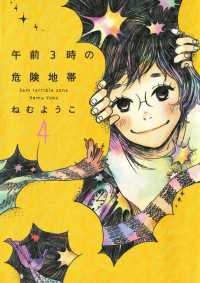- ホーム
- > 洋書
- > 英文書
- > Literary Criticism
Full Description
The ideal of 'conversation' recurs in modern thought as a symbol and practice central to ethics, democratic politics, and thinking itself. Interweaving readings of fiction and philosophy in a 'conversational' style inspired by Stanley Cavell, Fiction, Philosophy, and the Ideal of Conversation clarifies this lofty yet vague ideal, while developing a revitalizing model for interdisciplinary literary studies. It argues that conversation is key to exemplary responses to sceptical doubt in ordinary language and political philosophy where scepticism threatens ethics and democratic politics and in works of British fiction spanning from Jane Austen through Ali Smith. It shows that for these writers, conversation can shift attention from metaphysical doubts regarding our capacity to know 'reality' and other people, to ethical, democratic, and aesthetic action. The book moreover proposes and models 'conversational criticism' as a framework linking literary studies to broader political and ethical commitments, while remaining responsive to aesthetic form.
Contents
Acknowledgments
Abbreviations
Introduction: Conversation as Worldmaking in Literature, Philosophy and Criticism
1. Perfectionism and the Conversation of Justice: Austen and Cavell
2. Performative Conversation and Acknowledgment: Meredith, Austin and Cavell
3. Conversation and Common Sense: Woolf, Russell and Kant
4. Public Conversation and Judgement: Rushdie and Arendt
5. Digital vs. Political Conversation: Ali Smith, Arendt and Wittgenstein
Afterword
Notes
Bibliography
Index








